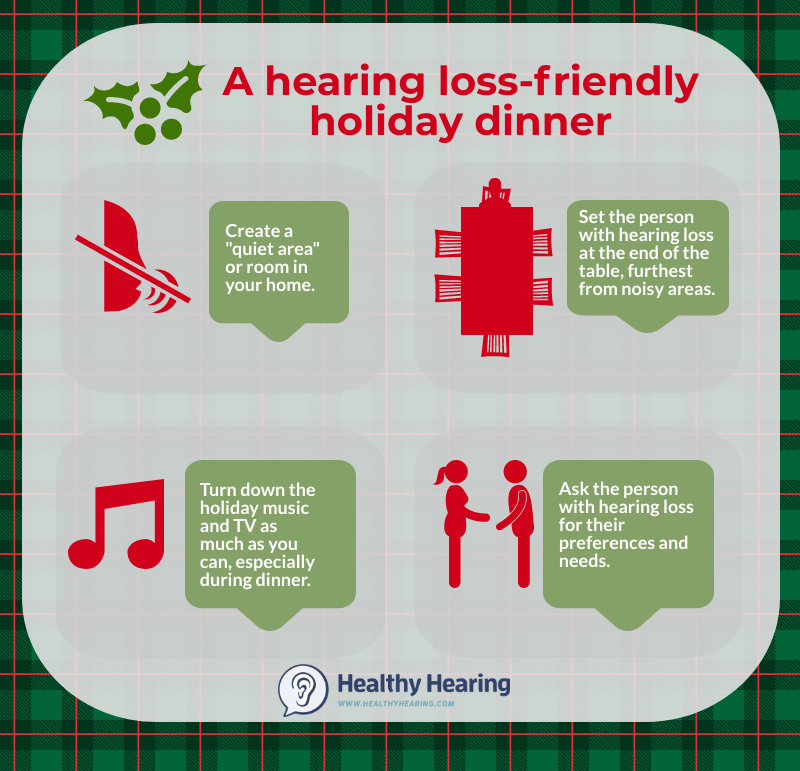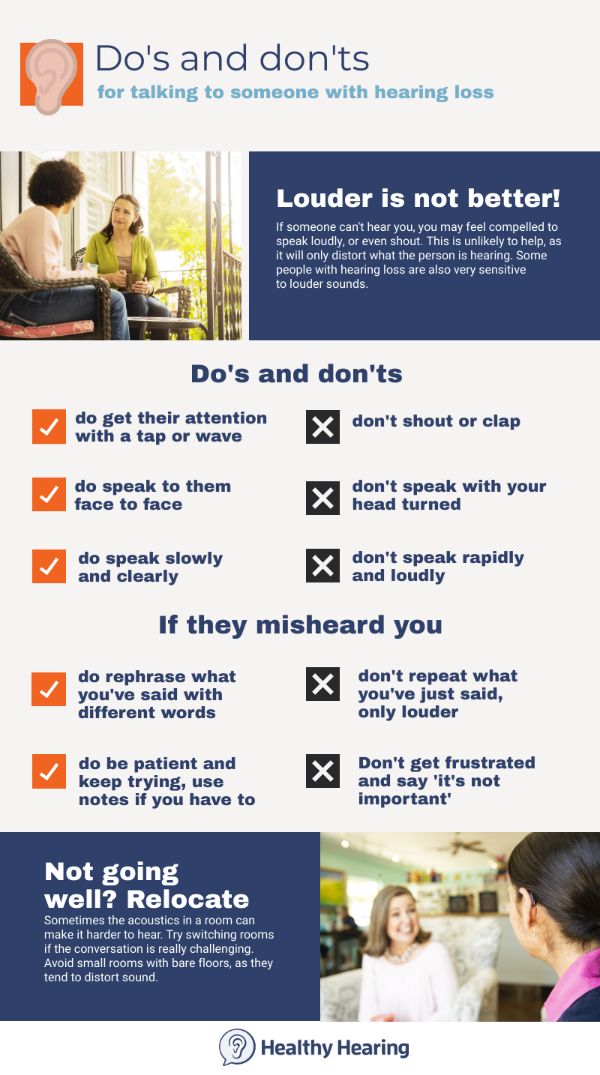Festive gatherings full of holiday music and noise can be a challenge for people with hearing loss. Even if you or your loved one wears hearing aids, background noise and other factors can still make it hard to hear at parties or dinners.
As a result, a person with hearing loss or Deafness may end up feeling left out, unable to keep up with the conversation. This is commonly known as "dinner table syndrome."
How to be a hearing loss-friendly host
The good news? There are some minor accommodations you can undertake to ensure your guests with hearing loss feel welcomed at the table, too. Be sure to add these to your list of party idea to-do's to avoid the dreaded dinner table syndrome:

1. Designate a quiet area or room
If you can, set aside one area of your house or party that is a "quiet area" without background noise or loud sounds.
Also, take a few moments to consider who is coming. Will there be a lot of young children? Consider designating a playroom where they can play with their toys together. Got football fans expecting to watch the big game? Make sure the TV won't be playing loudly in the same area as your quiet area.
2. Dinner table considerations
When it's time to eat, how the table is arranged matters more than you might realize. Round tables, for example, make it easier for a person with hearing loss to keep up with conversation. Here are other things to consider:
- Windows: Close the drapes to reduce glare (for speechreading) and improve sound dampening, as they absorb sound waves.
- Lighting: Bring in additional lamps if the room is too dark.
- Seating: Put the person with hearing aids furthest from noise at the kids' table and the kitchen or TV.
- Clear the sightlines: Place candles or centerpieces on side tables during the meal to keep views unobstructed.
More: Home acoustics can make it harder to hear, but there are easy fixes
3. Reduce the noise level and holiday music
If you can’t designate separate rooms for the big game or kids playroom, at least turn the television off during dinner. Also, turn down the holiday music—or turn it off completely—while you eat. It tends to make people speak louder. Wait until your guests have left the table before clearing the dishes.
4. Know the do's and don'ts of talking to someone with hearing loss
For people with hearing loss or other hearing impairments, a noisy environment or friends who speak too quickly can make communication extra challenging. We've got a full list of tips for talking to someone with hearing loss here, but here's a quick summary.
More: How to hear better in challenging places (like a crowded restaurant), even if you don't have hearing loss.
How to accommodate someone with hearing loss

If you have hearing loss, self-advocate
If you’re a guest at a holiday gathering, don’t be afraid to take the hosts aside and politely discuss your needs. It’s okay to ask to be seated so that the majority of guests are on your “good" side (if you have one) or the farthest away from the kitchen clatter or television din. Enlist a friend or family member to be your dinner partner so they can help you catch conversation you might otherwise miss. If background noise is distracting you from hearing the conversation, speak up (politely) and let someone know you are having trouble hearing.
More holiday healthy hearing articles:
- Our top recommended children's books about hearing loss
- Healthy Hearing's gift guide for people with hearing loss and tinnitus
- 8 tips for dealing with restaurant noise when you wear hearing aids
And remember—consider visiting a hearing care professional near you if you have trouble hearing your family during the holidays.
The above is the interpretation of Dinner Table Syndrome: The Isolation of Hearing Loss in Groups provided by Chinese hearing aid supplier Shenrui Medical. Link https://www.srmcm.com/Blog/Dinner_Table_Syndrome_The_Isolation_of_Hearing_Loss_in_Groups.html of this article is welcome to share and forward. For more hearing aid related information, please visit Blog or take a look at our Hearing aids products















